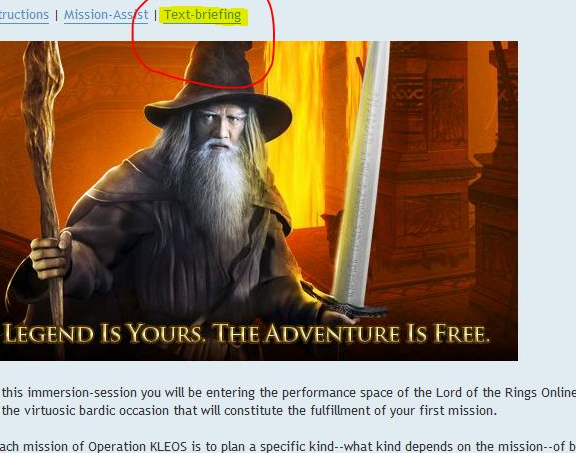
By Nathan Maton
Remember Math Blaster? Careening through space, shooting apple cores to learn about multiplication? That’s the most common correlation to the idea of "educational games." But there's a completely different way of using games for learning.
Roger Travis, a professor at University of Connecticut who teaches classics and researches gaming describes it this way: "When the learning objectives are the same as the play objectives of the game, that's game-based learning."
Travis has created a game to teach Homer texts he calls "Operation ΚΛΕΟΣ." The objective of the game is for students to develop an analytic sense of both ancient and modern epic narratives and to perform as modern bards with a sense of ancient tradition.
There are no video game controllers in this class. Playing the game requires students to become bards and discuss epic narratives. Students perform bardic rituals on online games like Lord of The Rings Online. They form teams at the beginning of the course, and each team represents a separate character who they learn about and attempt to role-play in their game performances.
Travis uses game play to structure rules that require deeper interrogation of the subject, and he believes any subject below graduate-level studies can be taught this way. But creating a game-based learning experience is not easy. Travis has been teaching this course for six years, but it's only his second year trying to make it a game. Last year he created a narrative that spoke to students as college students instead of as bards in an epic story, requiring his students to learn more about the fictional narrative he created, which separated the play objectives from his learning objectives.

